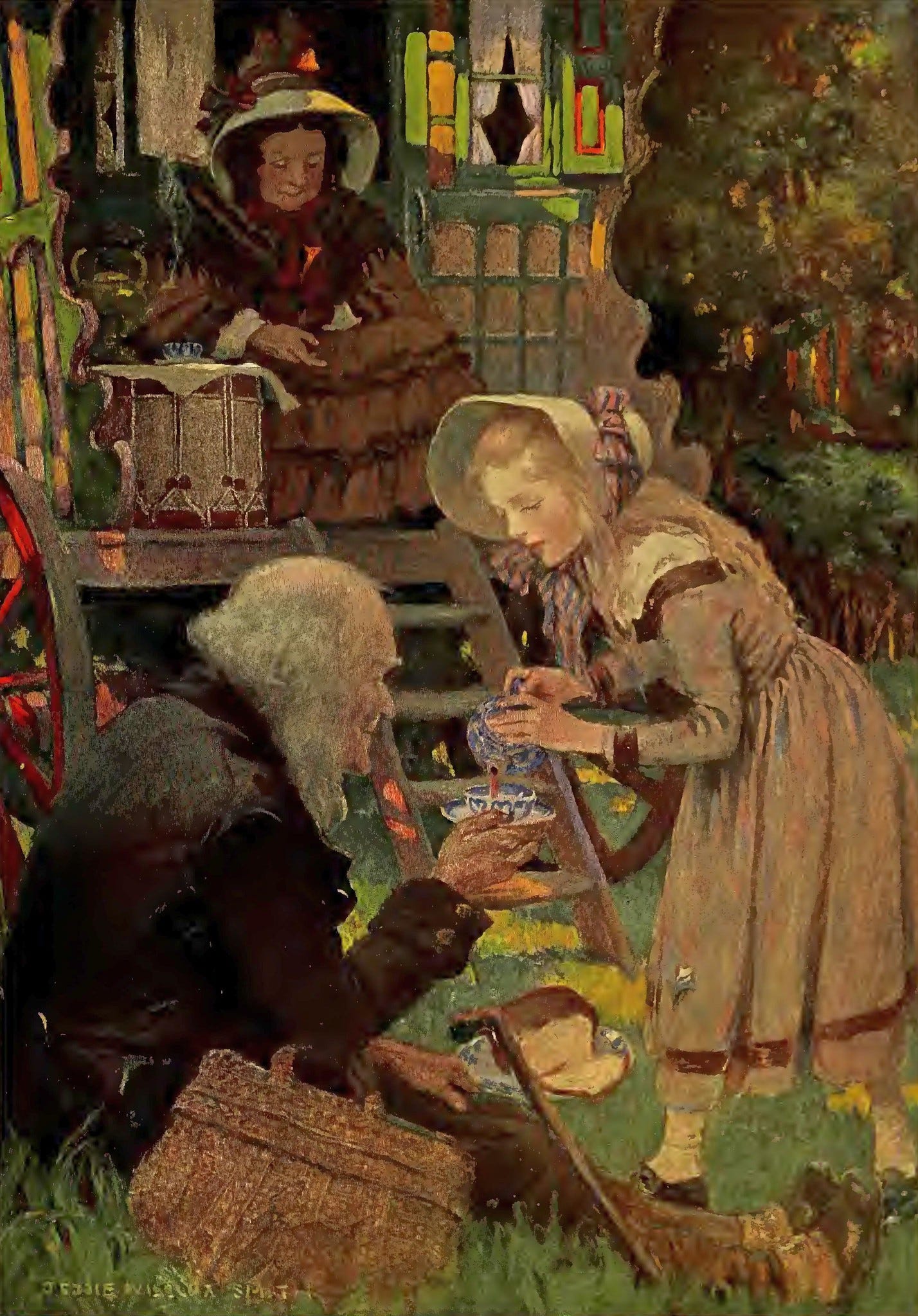One hundred eighty-five years ago this June 28, Queen Victoria was crowned in Westminster Abbey, officially marking the beginning of a six-decades long reign that only her descendent Queen Elizabeth II would surpass in length. The crowning ceremony was plagued by certain awkward occurrences, perhaps giving it an ill-omened cast in some spectators’ eyes. If so, they judged wrongly, because Victoria’s reign marked the beginning of Britain’s golden age, in which the Empire enjoyed increased global influence, significant political and social reforms, amazing technological advances, and a literary flourishing featuring some of the world’s best-known authors.
Britain rose to the height of its power during Victoria’s reign; it’s empire, the largest in world history, eventually controlled almost a quarter of the world’s landmass and population.
Rumbo Rhymes by Alfred C. Calmour, illustrated by Walter Crane, Harper & Brothers, 1911. TheCMN/Flickr.
The British Empire greatly influenced world history; its cultural and political dominance and huge geographical reach brought about English’s rise as the world’s lingua franca, a position it retains to this day.
British power also contributed to a period of relative peace in Europe, as well as the abolishment of the slave trade—the Royal Navy’s West Africa Squadron, which patrolled Africa’s western coast and stopped any ships illegally carrying slaves, eventually had a decisive effect on ending the slave trade after decades of hard effort.
Domestically, British politics saw a period of increasing democratization. A series of bills known as Reform Acts gradually expanded the voting franchise to larger and larger parts of the population, increasing the middle and working classes’ political influence.
King Arthur's Knights, by Henry Gilbert, illustrations by Walter Crane. TheCMN/Flickr.
This incremental, decades-long progress demonstrated that social improvement can happen peacefully without resorting to brutal revolutions inspired by utopian ideals that lead only to bloodshed and tyranny, as happened in the French and Russian revolutions. British ideas of governance also proved influential overseas, and the British parliament became known as the “mother of parliaments.” considering how many other nations came to adopt the British parliamentary model.
Another British legacy from this era was the prolific literary culture. Many of these authors’ works became classics not just of British literature, but of world literature. These include Charles Dickens, who wrote numerous beloved fictional works such as David Copperfield and A Christmas Carol; Sir Arthur Conan Doyle, who put the detective novel on the map with his Sherlock Holmes stories; Oscar Wilde, famous for his biting satire; the Brontë sisters, who wrote several classics; and Rudyard Kipling, writer of The Jungle Book and many popular poems.
Dickens's Children, illustrations by Jessie Willcox Smith, McClelland & Goodchild Publishers, 1912. TheCMN/Flickr.
The Victorian Era also saw an explosion of industrial and technological innovation, advancement, and invention. The 19th century saw a transportation revolution, especially in railroads, which came to blanket Britain. The consequences of the booming railway construction were wide-ranging: “The distance between town and countryside was erased. Dairy produce and fish could be delivered easily to different parts of the country within hours. Increased communication allowed for the spread of ideas and national newspapers.”
Other Victorian inventions that we take for granted today include the underground railway, electric clock, photography, and the pedal bicycle.
Queen Victoria’s monarchy oversaw one of world history’s most transformative epochs. If you’d have spoken to one of Victoria’s subjects at her coronation and told him about the massive technological and political changes the next few decades would see, you likely would have received an incredulous stare. For all of these reasons, and for its cultural legacy, the Victorian Era deserves to be remembered.







